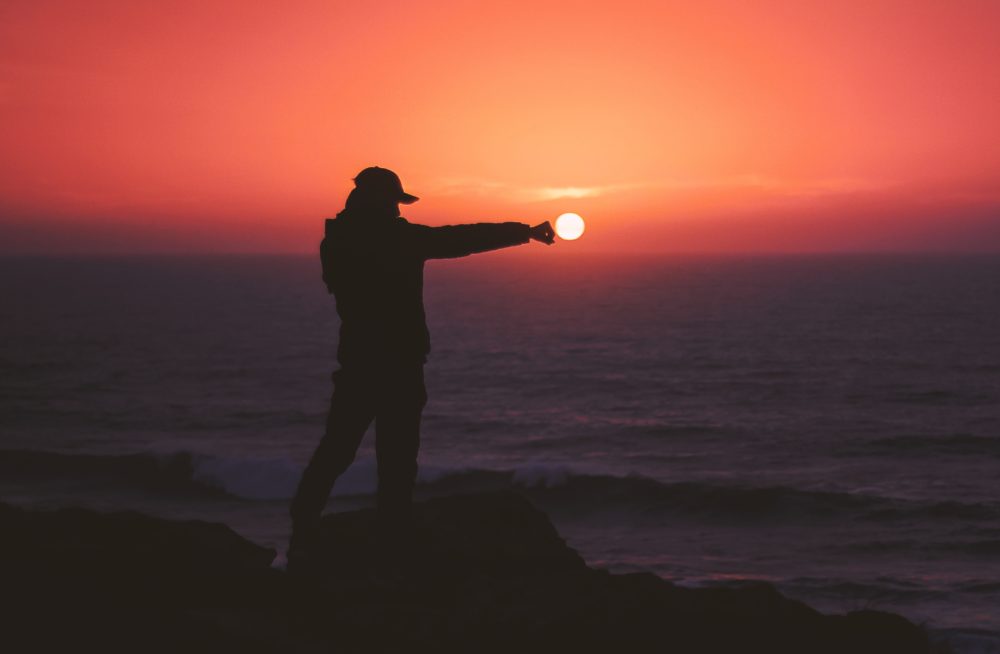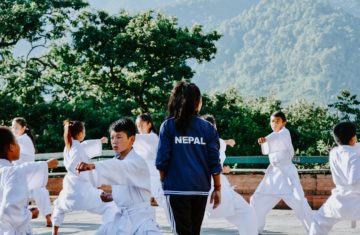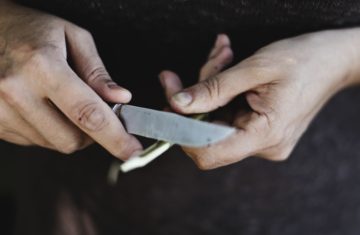The more I learn about and practice martial arts, the more I realize this is true: real strength is quiet strength.
I know this is a strange thing to say when we’re surrounded by a culture that thinks real strength is bully strength, bravado strength. But that’s definitely not the ninja way. The ninja didn’t flaunt their skills. In fact, they kept them as hidden as possible. They realized something that ought to be obvious for all of us: real strength is not an image, or a persona.
It’s not a posturing. It’s a presence.
A few months into my training, my teacher Master Lee was showing us a board breaking technique. He happened to have a board in his hand, and as he was demonstrating the hand movement, he accidentally tapped the board and it broke clear in half, flying across the room. I couldn’t help but laugh, because he did this with such little effort. Here we were, newbies, focusing on putting all of our body strength into breaking this board, and Master Lee just taps it into oblivion. Master Lee is so kind and positive, but that moment reinforced that he’s also incredibly powerful. He just never, never flaunts it.
The more I read about other martial arts masters, the more I see this same quiet self-assurance. The masters who rose to the top of their craft never walked around with machismo.
I’ve been reading the memoir of karate hero Gichin Funakoshi and he tells the story of a night he was walking home and some local fellows challenged him to a hand wrestling competition. He denied at first, but they taunted him, so he quietly took his seat and won the first match easily. The fellows then wanted another match, so the next man sat down for the challenge. Again, Funakoshi said he didn’t want to compete, but they pressed him to stay. He beat the second man just as easily. This time, they accepted his insistence that he must be on his way, and he again began heading home.
As he walked the rest of the way, Funakoshi says he felt overwhelmed by the guilt of pride. Sure, his words said he did not want to compete, but his actions told a different story. Somewhere deep inside, he admitted he enjoyed being discovered as a man with great strength. He said this experience was a violation of karate-do, and it brings shame to him even now when he thinks of it.
What struck me about this story was how perfectly Hollywood it was; here comes a man, Funakoshi, whom the audience knows is a karate master. And here are these foolish fellows who don’t know him, challenging him to a late night hand wrestling duel. It’s such a perfect opening scene, where the audience can eagerly watch the hero take down these unassuming strangers. (These guys are about to get taken down by Bruce Lee and they don’t even know it!) But Funakoshi didn’t make any big deal of his winning, and he felt ashamed afterward for competing at all.
This is true humility.
Ninja wisdom will tell you that if a person is boasting and filled with swagger, they have not yet learned the martial way. And they do not yet possess real strength. Real strength is not just physical prowess. It’s mental, spiritual, emotional, whole-body strength. It is inner calm. It’s unwavering, and you feel it in their presence, not their fists.
This isn’t only true for martial artists. Ghandi and Jesus both embody this kind of strength, and they never punched anyone at all. People followed them because of the power and beauty of their souls.
Don’t entrust yourself to those with bravado strength. Don’t let them be your teachers. (It’s probably wise not to let them be our leaders, either.) Pick the ones who have quiet, real strength, for they are the ones who truly understand the martial way. And when it counts, they’re the ones you want by your side and in your corner.




